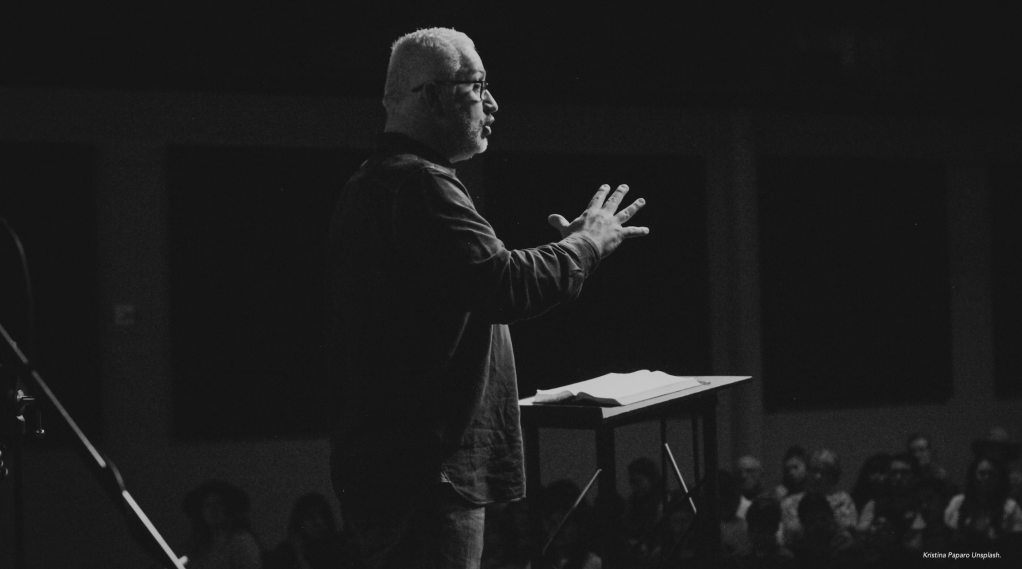
I’ve been listening to a lot of sermons recently, among them has been Tim Keller, Malcolm Guite, Martyn Lloyd Jones and David Johnston (the latter was preaching on Revelation IRL).
Admittedly, I am the choir to whom they were preaching and not everyone will approve or appreciate their ministries. But it’s caused me to reflect on some of the key components of preaching that appeal to me.
The cure of souls
I have listened to many ‘how to’ sermons over the years. I’ve heard historical surveys, prophetic denunciations and the odd ethical reprimand; and I’ve preached too many of these myself. But recently I’ve been reminded that, for me, the most powerful and helpful preaching has been that which deals with the cure of souls. My favourite preachers and authors all spoke directly to the human condition. They engaged with the tension between the old and new self, the vestiges of sin, the condemnation and anxiety experienced (perhaps especially by believers). They applied the Gospel to the inner-self. Not because the external or ethical self is unimportant but because the inner is the primary source of our problems. I wonder if in the haste to seem contemporary or relevant we have ignored the timeless struggle of the inner sinner in favour of encouraging better behaviour.
The law as love
I’m sure that I’m not alone in struggling with the law. Not just in the Romans 7 sense. I struggle to work out how to preach about it. It’s not just the Torah, it’s the ethics of the wisdom literature and the even stricter interpretations by Jesus in the New Testament.
One option is to ignore the law and other difficult Scriptures. Another is to rebuild the law and encourage believers to fall again under its damnation. But preaching which engages with the beauty of the law and its revelation of God’s character while maintaining the Christian’s freedom from condemnation, is more helpful to this sinner. Recently, I listened to Keller explain that the law reveals the life of Jesus which was welcome revelation to me.
Secondly, I find preaching helpful that reveals how the law instructs our discipleship; how to love and follow Jesus. We are no longer under the condemnation of the law, but if the law and biblical ethics reveal the character of Jesus they teach us how to follow him. In this way the law and wisdom books instruct our worship and adoration of Jesus.
Lastly, I recently listened to a sermon which reminded the hearers of the need to hear the bad news of the Gospel. I admire preaching which handles the law and other biblical ethical teaching so that the sinful structures and idols of both contemporary society and our individual hearts are revealed. Keller’s perspective on idolatry and the commandments is a good example.
The glory of Jesus
The most important thing I’ve learnt about preaching has also been a recent discovery. For years I’ve followed a relatively strict structure of ‘witty’ introduction, the meaning of the text in context and then a contemporary application. It was David Johnston in his sermons on Revelation who reminded us, sometimes it’s enough to simply glorify Jesus.
This helped me to define what I love about Keller’s preaching. I would argue that for him, the application of the text is the glorification of Jesus. Of course he engages with the contemporary application, usually from the outset of his sermons. But rather than the crescendo of his presentation of the Gospel being ‘how should we then live?’ his sermons climax in the glory of Jesus Christ. To me this is the logical outcome of applying the Gospel as the primary hermeneutic of biblical exegesis and preaching.

